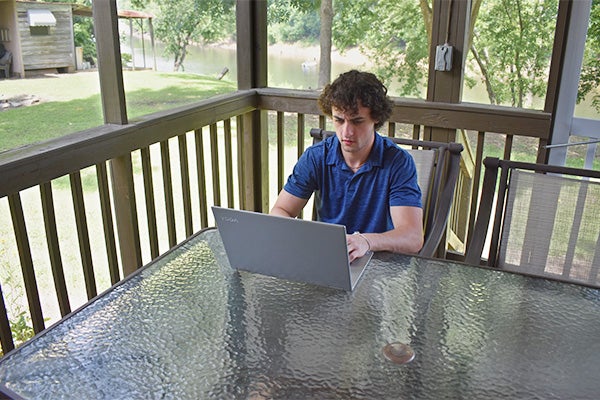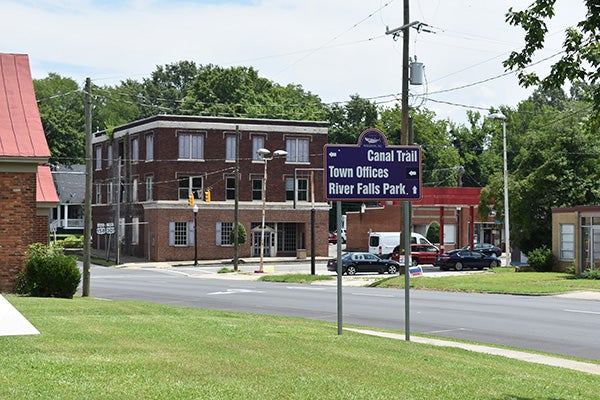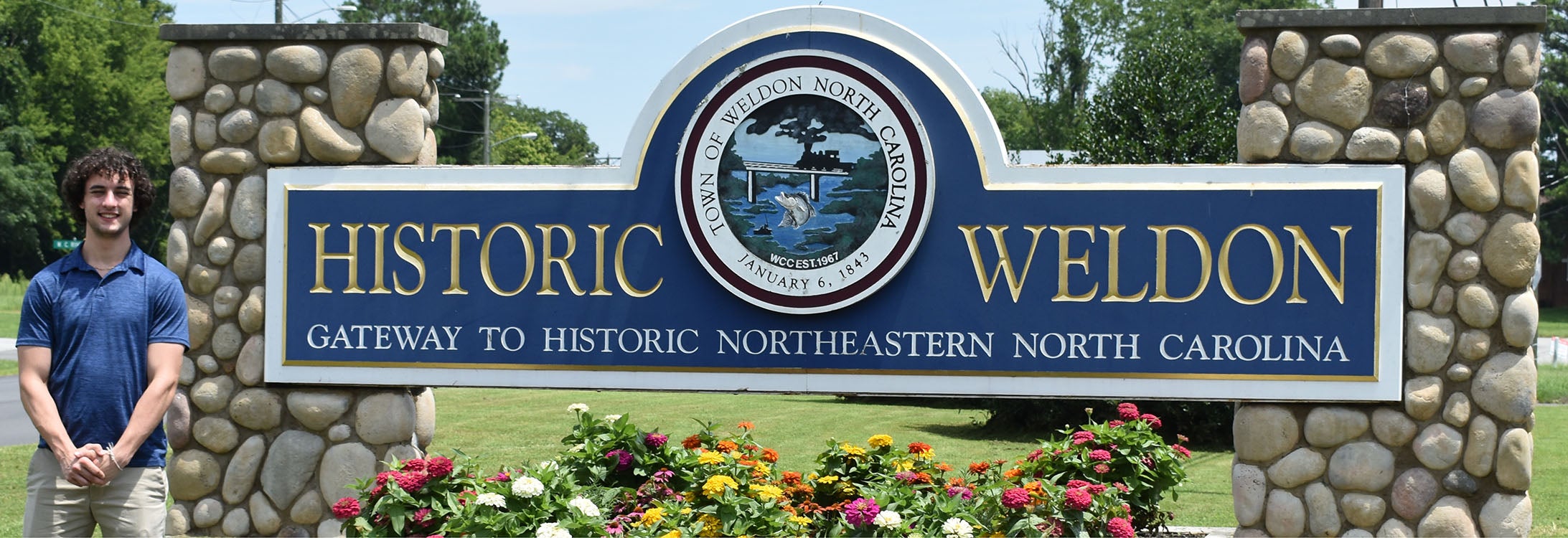READY, SET, ACTION!
Edwards connects with Weldon in Action's mission as part of SECU PFI program
We’ve all driven through, grew up in, or may even live in a small town that used to be the bustling, lively hub of the region.
But now, the streets are lined with vacant, crumbling buildings. Businesses are sparse, and the lasting residents are left feeling forgotten.
Experiencing the bottom of the life cycle of a community is not a problem unique to rural North Carolina. Luckily, many community leaders and organizations are picking up the torch to spur a comeback.

Edwards, a management information systems major, saw the job description for the Public Fellows Internship position at Weldon in Action and thought it fit perfectly with what he was studying at ECU.
This effort is something SECU Public Fellows Internship Program participant and East Carolina University senior Alex Edwards witnessed at the ground level.
Edwards, a management information systems major, originally applied for a different internship through ECU’s RISE29 program. But, when he saw the job description for the Public Fellows Internship position at Weldon in Action, he thought it fit perfectly with what he was studying at ECU and was intrigued by the endeavor.
“It seemed like a really cool mission — much different than what you would get out of working with a prototypical nonprofit,” Edwards said.
Weldon in Action formed in 2021 with the mission to restore and revitalize the town, energize and engage the community, and promote economic development in the Halifax County town. Organizers have big aspirations, and a three-person team leading 25-30 volunteers is getting the organization up and running.
“Weldon was a very cosmopolitan town because of the river and the railroad,” Weldon in Action Coordinator Alice Irby said. “You had all these people coming and going from everywhere. Weldon was the commercial and cultural center of this part of the state. We had Jewish families, Greek families, Lebanese families all in a town of 2,500 so you can imagine the international flavor that we had.”
J.W. Shearin, urban regional planner, ECU alum and treasurer for Weldon in Action said, “My generation was the last generation when this town was still vibrant. People like me who wanted to go to college, once you got out, the jobs weren’t here to draw you back. So, you have the older generation, the kids not coming back, and then they just liquidate the businesses and all. It just transitioned out.”
“Communities get used to what has changed and they don’t know how to get out of it,” he said.
Like many others Irby grew up with, she left the area to pursue higher education and a career.
She received her master’s degree from Duke University, became the director of admissions at her alma mater of University of North Carolina Greensboro, worked in educational testing services at Princeton University and went on to become the vice president of student services at Rutgers University. When Irby returned to North Carolina, she saw a great need, and great potential, in her hometown and launched into action, pulling in talent and assistance from current or former Weldonites.
She also reached out to community partners.
The PFI program at ECU connects the university and regional communities through projects that address community-identified priorities. Partnering with ECU through PFI, Weldon in Action sought an intern with a background in business, management, marketing and/or information systems.
Edwards’ supervisors readily agreed he came with the skill set and temperament to provide a great service for the organization.

Weldon, situated an hour north of Greenville in Halifax County, has a population of 1,444 residents.
For the organization to put its goals into action, fundraising and grants were needed. To apply for grants, organizers had to supply documentation and justify the requests.
To better prepare the organization to fundraise and conduct business, Edwards said, “I helped implement a database that can do all of their financial tracking and produce reports. Also, it can track all of their contacts and donors, as well as all the activity the organization has had with those contacts and donors. I also started implementing a communication channel for them so they can become more organized with their communication.”
Shearin pointed out Edwards’ contributions. “He helped set the major building blocks for the foundation, and that is not something to minimize. The organizational management and structure of what he’s done will be with us forever.”
Edwards found that part intimidating.
“The database is going to be important for tracking just about everything the organization is doing, so when they told me it was the main thing they wanted me to build and the importance of that, I was thinking, ‘I can’t mess this up,'” he said. “If I did, they would be largely affected in the future because they trusted this database that I built for them. Being responsible for something of such importance for the organization is definitely incredible.”
Shearin said Edwards was eager for opportunity, and “I never heard the word ‘no.’ If he didn’t know how to do something or know the answer, he would study and learn.”
Commuting to Weldon a few days a week from his hometown of Raleigh, Edwards found a very different view driving on back roads past acres of fields. And, he found an appreciation for those working so hard to help improve the small community.
“I’ve really enjoyed meeting all of the people from around here and getting involved in everyone wanting to improve this city. Everyone may have gone on to different things, but all of them have in common that they care for Weldon and want to see Weldon thrive,” he said. “They are putting in their own time and money to accomplish the mission.”
As a student interested in pursuing a career in the field of cybersecurity or technology, Edwards said, “Before, I didn’t think I would even consider working for a nonprofit. My brother went from one job to join a nonprofit, and he took a major cut in pay, but he did so because he actually believed in the mission they had. I thought I could never do that. But now, seeing something like this firsthand, I can see myself doing that in the future.”
MORE PFI INTERNS
MORE STORIES
